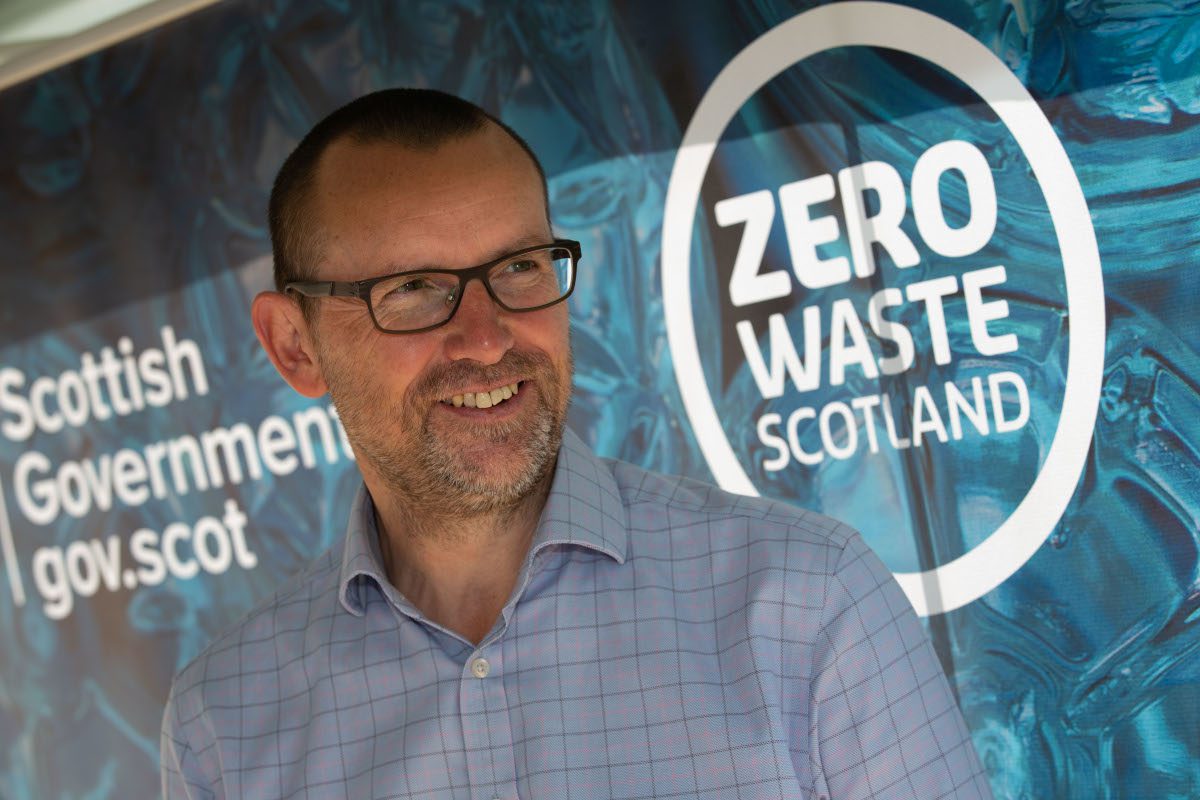
The Scottish Government-funded circular economy advisory group Zero Waste Scotland is warning that the current focus on plastics is distracting from the real issue of ending the disposable throwaway culture and urges Scots to take a stand against unwanted extra materials in their daily lives.
The environmental organisation is calling on people to use the period of Climate Week, running from Monday 7 October to Sunday 13 October, to make a point of refusing materials that are frequently added to the items we buy everyday.
Whether it is unwarranted packaging, unwanted food garnishes, straws in drinks or any other unexpected ‘extras’, Zero Waste Scotland is calling on consumers to let retailers and producers know the item is not wanted and to highlight it on social media.
Four fifths of Scotland’s carbon footprint is generated through the heat and energy required to grow, make, process, transport and provide materials that are often tossed aside at the end of their life. This could be reduced dramatically by addressing our single-use habit, plastic or otherwise. Although well intentioned, much of the current focus on simply eradicating plastic can replace one environmental problem with another and it is the culture of all single-use items that needs to be addressed to better protect our planet.
Iain Gulland, Chief Executive of Zero Waste Scotland, said:
“We desperately need to reduce the amount that we consume, and we can make a significant start by rejecting unnecessary single use items and unwanted ‘extras’.
“The power lies with people to both make changes and to ask businesses to do more. Consumers can speak up, in person and on social media, to make it known that companies need to up their game.
“Plastic can actually help us in the war against waste. It is long-lasting by nature, so it should be managed responsibly, but if used well it can extend the lifespan of products. Bags for life and reusable coffee cups, for example, usually include plastic in their make-up.
“In the backdrop of climate change and a rising population, it’s fantastic that more people are switched on to environmental issues. It’s critical that we make good decisions for the environment, and we can do that by reducing our reliance on all unnecessary single use items.”
Stressing that businesses must also play their part in reducing waste, he added: “In response to public pressure on single use plastics, the first reaction from most businesses is to make their single use items from some other material. The problem is not single use plastics; it is single use. There is no single use solution to the single use problem. Many single use things could just as well be reusable.”
The war on plastics arose from growing public and political concern about the impact of plastic on the environment and wildlife, particularly through pollution and harm to marine animals and birds which ingest or become entangled in plastic litter.
Reducing the demand for all unnecessary single-use items, no matter the material, will ultimately cut carbon emissions. As an example, plastic straws and non-plastic alternatives have been put in the spotlight since Blue Planet II and while for some they are essential for medical reasons, in most instances they are the type of items many of us could do without.
Join the conversation at #ScotClimateWeek







